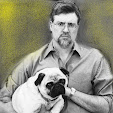 A year ago yesterday, I spent ten hours in the basement of the Portland Art Museum watching the film Shoah in its entirety. It was a character-forming experience, and I wrote a post about it ("War Crimes: the Film Shoah"). Now, a year later, I've read director Claude Lanzmann's memoir, The Patagonian Hare, which is a good accompaniment to Shoah -- and interesting even without the anchor of his great film.
A year ago yesterday, I spent ten hours in the basement of the Portland Art Museum watching the film Shoah in its entirety. It was a character-forming experience, and I wrote a post about it ("War Crimes: the Film Shoah"). Now, a year later, I've read director Claude Lanzmann's memoir, The Patagonian Hare, which is a good accompaniment to Shoah -- and interesting even without the anchor of his great film.Lanzmann, it turns out (and I guess I would know this if I were French), had a visible, significant, exciting existence even before Shoah -- and he is a passionate, though occasionally digressive, storyteller. Born in 1925, Lanzmann was raised (along with two younger siblings) primarily by his father, after his mother quit the marriage and family. (Lanzmann reconciles with her and adores his stepfather.) The Lanzmanns were non-practicing Jews -- and Lanzmann recounts that his first encounter with a rabbi only took place in the 1950s.
But wait... After seeing Shoah, one wouldn't expect Lanzmann to proceed in a traditional fashion -- and he doesn't. The memoir actually begins: "The guillotine -- more generally, capital punishment and the various methods of meting out death -- has been the abiding obsession of my life." Lanzmann then launches into an overwhelming ten-page reverie describing execution after execution -- by guillotine, by garotte, by axe, by a bullet to the neck, by bayonet training on live human targets. Then Lanzmann catches his breath and writes, "You must understand that I love life madly, love it all the more now that I am close to leaving it..."
And so his life proceeds -- death and life, death and life, death and life. Lanzmann and his family evaded deportation and fought in the French Resistance. He went on to be a journalist and right-hand man to Jean-Paul Sartre (at the journal Les Temps modernes); he was Simone de Beauvoir's lover for many years (and they keep getting into dramatic, life-threatening mountaineering incidents); he first traveled to Israel in the early 1950s -- and to North Korea as well. He tells a long, very French story about his passion for a Korean nurse -- and the utter weirdness and severity of North Korea. Lanzmann supported Algerian independence and marched with rebels, but he later repudiated the new nation when it supported the destruction of Israel.
Lanzmann stumbled into film-making, first making a film called, Pourquoi Israel, after doing some French TV work. He agreed to make a then-untitled Holocaust film for the simple reason that he wanted to spend time in Israel with a woman who became his wife.
The last 20 percent or so of the book (about 100 pages) then describes, in almost an abbreviated way, the making (and to a lesser extent, reception) of Shoah, which took 12 years. Lanzmann describes how he met people and conceived of some of the segments -- such as the scene with Abraham Bomba, pretending to cut hair in a Tel Aviv barber shop, as he describes cutting the hair of women moments before they were gassed at Treblinka. He also discusses segments and people who didn't make it into the film -- including a member of the Einsatzgruppen.
In one moving scene, Lanzmann describes knocking late at night on the door of an elderly man in a small Polish village -- this is Henrik Gawkowski, the engine driver of the death trains at Treblinka, who appears early in the film. Lanzmann is the first man to ever ask him about his experiences, and he welcomes and feeds Lanzmann, and they talk until dawn. Henrik (as Lanzmann affectionately calls him) is "devastatingly honest," and this scene deepens one's experience of the film.
On many occasions, Lanzmann lied to government and private funders in order to see his film to its 9.5-hour, 12-year end. But while seeking funds in the U.S., he could not answer one question: "'Mr Lanzmann, what is your message?' Each time, I remained silent, I was incapable of answering such a question; I still am. I don't know what the 'message' of Shoah is. I never thought of it in those terms. If I had said, 'My message is: Never again!' or perhaps 'Love one another,' wallets would probably have sprung open, but I was a sorry fundraiser: of the budget for Shoah, not one single dollar came from the USA."
